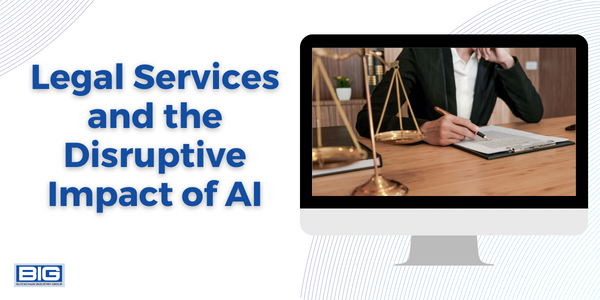
Artificial intelligence has already made significant inroads into many different industries, and legal services are no exception. As AI continues to advance and become more accessible, it is likely to have a profound impact on the way that legal services are provided and consumed. Here, we take a look at ten practice areas where the use of AI technology is likely to impact attorneys.
- Contract Review and Drafting: AI technology is increasingly being used to automate the process of reviewing and drafting contracts. This not only makes the process faster, but also reduces errors and increases accuracy, leading to significant cost savings and improved efficiency.
- Document Review: AI is also being used to automate the document review process, which is often time-consuming and labor-intensive. By using machine learning algorithms to analyze large volumes of documents, AI can quickly identify relevant information and reduce the need for human involvement.
- Legal Research: Legal research is another area that is ripe for disruption by AI. By using machine learning algorithms to quickly search through vast databases of legal information, AI can help attorneys save time and effort, and provide more accurate results than traditional legal research methods.
- Due Diligence: Due diligence is a critical aspect of many legal transactions, but it can be time-consuming and resource-intensive. AI technology is being used to automate parts of the due diligence process, reducing the time and effort required from human analysts.
- Litigation Support: In the world of litigation, AI is being used to automate various tasks, such as document review and organization, witness preparation, and case analysis. This can help reduce the time and resources required for litigation and improve the accuracy and efficiency of the process.
- Regulatory Compliance: Compliance with various regulations is a critical aspect of many legal transactions, but it can be difficult to keep up with changes in the law. AI technology is being used to automate the compliance process, making it faster and more accurate, and reducing the risk of non-compliance.
- Discovery: Discovery is a critical aspect of many legal cases, but it can be time-consuming and resource-intensive. AI is being used to automate various aspects of the discovery process, such as document review, organization, and analysis, which can help reduce the time and effort required from human analysts.
- Legal Document Automation: AI is also being used to automate the process of creating legal documents, such as contracts and legal forms. This not only speeds up the process, but also reduces the risk of errors and improves the accuracy of the final documents.
- Predictive Coding: AI is being used to automate the process of predictive coding, which is used to identify the most relevant information in large data sets. This can help reduce the time and effort required for document review and improve the accuracy and efficiency of the process.
- Contract Management: AI is being used to automate the process of contract management, which involves tracking and managing contracts throughout their lifecycle. This can help reduce the time and effort required to manage contracts and improve the accuracy and efficiency of the process.
Monetizing AI: 10 Strategies for Early Adopters
—
OpenAI, Elon Musk, DALL-E and ChatGPT
—
Pros and Cons of Universal Basic Income
In conclusion, AI technology is having a profound impact on the legal industry in many different practice areas. The lawyers who best understand the future, who are proactive and adaptive; and who can embrace AI technology will be the ones best positioned to benefit.



